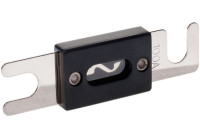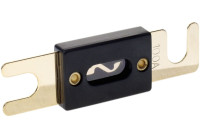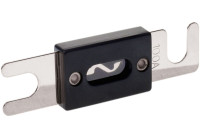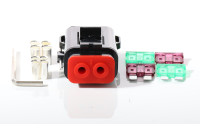Car fuses
Car fuses protect your car's electrical components from power surges and short circuits. When too much current flows through a fuse, the metal strip inside the fuse melts. This breaks the circuit, stopping any more current from flowing through until you replace the fuse.
Types of car fuses Blade fuses (ATO/ATC) : These are the most common fuses in modern cars. They have a rectangular shape and metal blades for easy installation. The amperage rating of a blade fuse is often printed on the fuse itself. For added clarity, the fuses have different colours. Blade fuses are often used for lighting, radios, and accessories.
Glass fuses : This older type of fuse consists of a glass tube with metal contacts at both ends. They are less common in modern cars, but you may still come across them. Glass fuses are also available in different amperage ratings.
Mini fuses (APS/ATM): Smaller than standard blade fuses and often used in compact cars.
Maxi fuses (bolt-down fuses): Larger and suitable for heavy loads, such as air conditioning or electric windows.
What to look out for?
Car fuses are for single use only and should only be replaced if they have blown. A glance at the fuse is enough to determine if a fuse is still good. If the wire is broken or the strip has melted, you need to replace the fuse.
A blown fuse can have several causes, such as incorrect installation, too many consumers on one fuse, or problems with electrical components behind the fuse.
Order fuses for your car
Prevent unnecessary damage to your electrical systems and wiring by using high-quality, reliable fuses. We have a wide range of fuses for every type of car.




